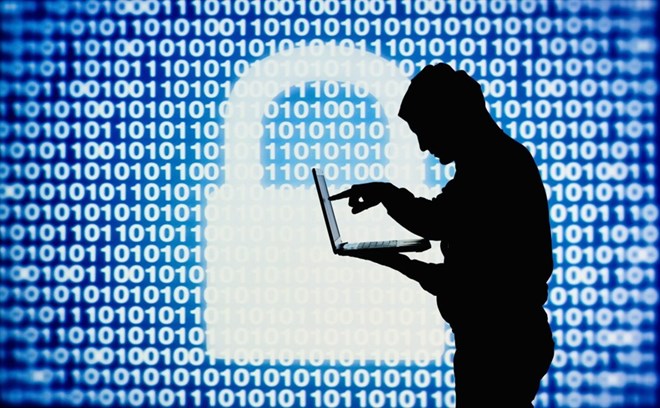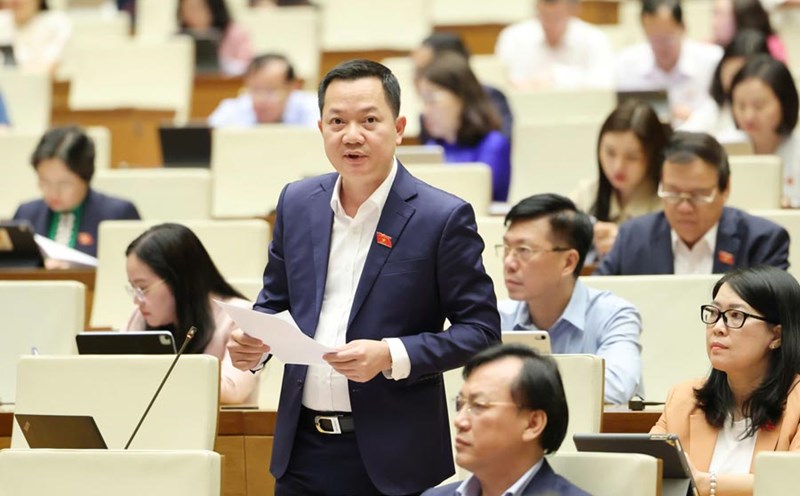Current situation of security and order in cyberspace in Vietnam
After 28 years of officially connecting to the Internet, with the strong development of telecommunications technology, the Internet has created a new opportunity for Vietnam to quickly grasp and take advantage of scientific and technological achievements to accelerate the industrialization and modernization of the country. Vietnam has been developing and effectively implementing many National Programs and Plans on the development and application of information technology and digital transformation, notably the National Program on Information Technology; the Planning for information and communication technology development to 2025 and vision to 2030; the National Digital Transformation Program in 2020. Policies and laws aim to promote the application of information technology to develop the digital economy - digital society, ensuring network security is improved. In particular, on December 22, 2024, the Politburo also issued Resolution 57-NQ/TW on breakthroughs in science, technology, innovation and national digital transformation development, showing a new thinking and vision, orienting the country to develop in the new era.

However, in addition to the positive aspects, cyberspace also poses risks and challenges to the work of ensuring national security and maintaining social order and safety. The 13th National Party Congress has determined: "cyber security is increasingly affected by many aspects, seriously threatening the stable and sustainable development of the world, the region and our country". Cyber attacks and cyber spying by hack groups, leaking lost information and personal data are becoming increasingly dangerous. The forces of the enemy are thoroughly taking advantage of cyberspace to propagate ideological sabotage and sabotage of the Party and State in cyberspace. High-tech crimes are becoming increasingly complicated, with increasingly sophisticated methods and tricks. Recently, the activities of criminals and law violators on security and order in cyberspace in our country have become increasingly complicated, unpredictable, and prominent are:
Cyber attacks and cyber spying in Vietnam are becoming increasingly complex, seriously affecting national security. International cybercriminal groups have organized an unprecedented large-scale data encryption campaign, demanding ransom to corporations and financial, energy and telecommunications enterprises, causing great economic damage and affecting the information security (IT) situation. The risk of network security loss is increasing, but the work of ensuring network security at some system management units has not been paid attention to and implemented synchronously. The investment and construction of network infrastructure meets requirements, there are many security vulnerabilities; the processes and regulations for management, operation and exploitation of the system are not strict; management units are passive in responding to and overcoming incidents.
The situation of disclosure of BMNN, illegal collection and sale of information and personal data continues to occur in many agencies and units. The subjects take advantage of security vulnerabilities and weaknesses in the systems to directly attack, invade, steal information and personal data to exchange and trade on cyberspace. Some domestic and foreign companies and enterprises use specialized tools and software to silently exploit, collect, and process personal data of users, form personal data warehouses, analyze, and process those types of data to conduct business and trade; allow third parties to access personal data information but there are no requirements or strict regulations, allow third parties to transfer and trade to other partners; The management and control of data at some agencies, organizations, and enterprises is still loose, lacking a monitoring mechanism, leading to employees taking advantage of their access to customer data warehouses to appropriate and sell them for profit after quitting work, or changing work positions. The act of exchanging, illegally exchanging information, personal information, and selling data on a large network of networks, organizing large-scale business trips, organizing large-scale business trips, organizing large-scale business trips, organizing large-scale business trips, organizing large-scale business trips, organizing large-scale business trips, organizing large-scale business trips.
Activities against the Party and State in cyberspace. In the context of the world and regional situation with many complicated developments, political hot spots, armed conflicts occurred in many places. During the country, important foreign policy and events took place; senior leadership personnel had many changes; many complicated cases arose regarding security and order. Hostile forces and opposition groups at home and abroad have taken advantage of posting many articles, videos and propaganda to sabotage ideology, mainly focusing on social networking platforms.
Activities using high technology to commit crimes and violate social order and safety are becoming increasingly complicated, causing public outrage, causing great property damage to people, especially fraud, property appropriation, gambling and organizing gambling, disseminating cultural exploitation products, buying and selling weapons, explosives, drugs, and fake degrees.
Some issues
To ensure network security and fight against cybercrime, in 2015, the Law on Cyber Information Security was developed and promulgated; in 2018, the Law on Cyber Security was promulgated. Up to now, the implementation of these 2 Laws has brought good results in ensuring network security, preventing and combating cybercrime.
Implementing the policy of the Politburo and the Central Steering Committee on Summarizing the implementation of Resolution No. 18-NQ/TW dated October 25, 2017 of the 6th Central Conference of the 12th tenure, on February 18, 2025, the Government issued Decree No. 02/2025/ND-CP regulating the functions, tasks, powers and organizational structure of the Ministry of Public Security (effective from March 1, 2025), in the direction of reducing the floor, reducing the intermediate level to be streamlined, compact, strong, effective, and efficient, thoroughly overcoming the situation of overlap and division into areas and fields, causing difficulties and reducing effectiveness in organizing service to people and businesses, in order to better serve the people.
Regarding functions and tasks, the Ministry of Public Security receives 5 groups of tasks from ministries and branches, including receiving the task of state management of network information security from the Ministry of Information and Communications (formerly). The Ministry of Public Security assigned the Department of Cyber Security and High-Tech Crime Prevention to be the unit directly responsible for state management of network information security; especially the reception and settlement of 10 administrative procedures under 3 public services: License, re-issuance, extension, amendment and supplementation of business licenses for network information security products and services; License and re-issuance of licenses for importing network information security products; Issuance of Identificationname Certificates.
Urgent requirements
In the above situation, the requirement to complete and amend legal documents is extremely urgent to ensure the need to continue to innovate and reorganize the state management system according to the new organizational model, including urgently merging the Law on Cyber Security 2018 and the Law on Cyber Information Security 2015 into the Law on Cyber Security on the principle of not changing the functions and tasks of ministries and branches, not creating new policies; ensuring the correct implementation of Resolution No. 18 of the Central Executive Committee on a number of issues to continue to innovate and reorganize the apparatus of the political system to be streamlined, effective and efficient, which is "one task assigned to only one agency in charge, taking on main responsibility", ensuring clear assignment and decentralization to avoid overlapping functions, tasks, management tasks, and omission of regulations in this Law, pointing out the contents of this Law, not being subject to regular regulations, not reflecting the principles of the Government's authority, and not reflecting the principles of the new regulations, regulations on the content and regulations of the Government's authority, and other subjects.
In the report on the review of the Draft Law on Cyber Security, the Committee for National Defense, Security and External Affairs agreed with the adjusted contents in the draft Law. The draft Law is consistent with the Party's guidelines and policies, ensuring consistency with the inherent law and the legal system. The drafting agency has thoroughly grasped and implemented instructions on innovation in thinking in law-making work. The draft Law dossier is developed according to shortened order and procedures, meeting the requirements of the Law on Promulgation of Legal Documents.











